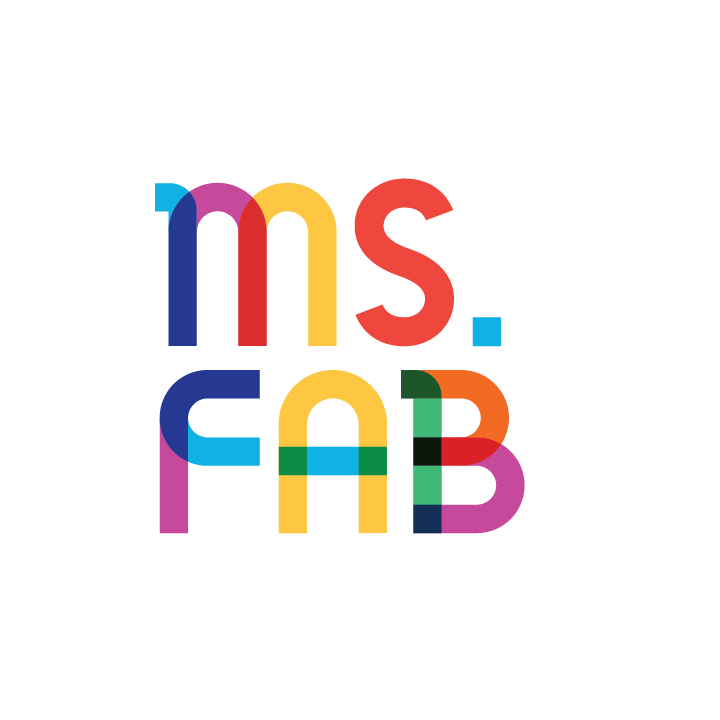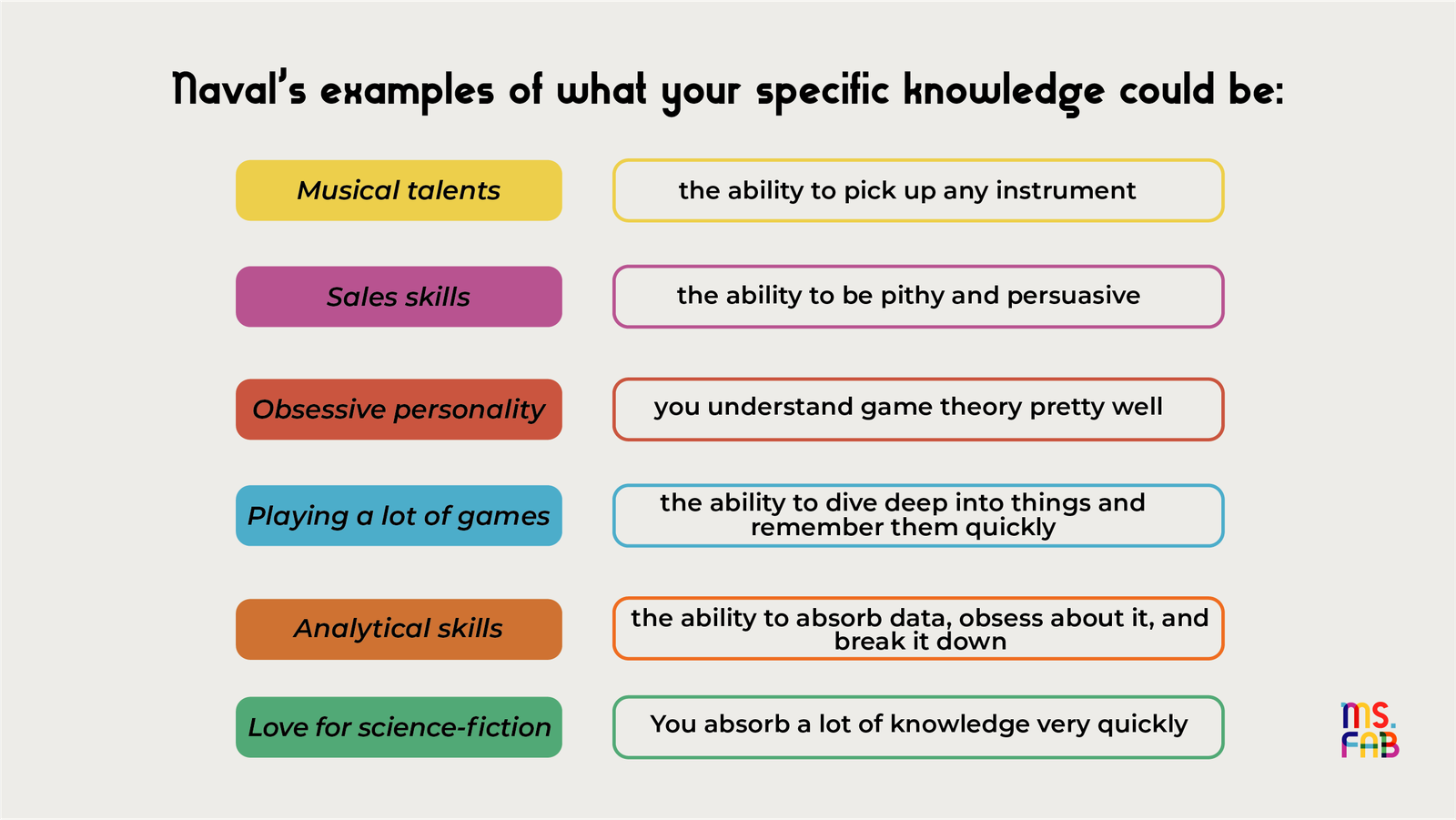Specific Knowledge: Find Your Unique Knowledge Stack
“No one can compete with you on being you, and most of life is a search for who and what needs you the most.“ — Naval Ravikant
Specific knowledge is what you—and only you—can offer the world.
Naval Ravikant —one of the most influential thinkers of our time—describes it as “this weird combination of unique traits from your DNA, your unique upbringing, and your response to it. It's almost baked into your personality and your identity. Then you can hone it.”
Now, it's important to clarify that specific knowledge is not the same as specialized knowledge.
Specific knowledge is not about going beyond the fundamentals into the technical. Instead, it’s about figuring out what you bring to the world that no one else can offer.
Figure out what you were doing as a kid or teenager almost effortlessly.
“Something you didn’t even consider a skill, but people around you noticed. Your mother or your best friend growing up would know.” — Naval Ravikant
What can only you accomplish? What feels like play to you, but looks like work to others?
For example, consider Dr. Greg House from the hit TV series:
Anyone can memorize different diseases and disorders—that’s specialized knowledge. What’s unique about House is:
his knack for understanding human behavior (experience taught him that everyone lies)
his compulsion to solve puzzles and explain the world
his comfort with taking risks to do so
Now that’s specific knowledge.
More often than not, specific knowledge is not “a lot of knowledge about one particular thing.” Usually, it’s a knowledge stack—a deep understanding about how three or more things connect.
So, how do we help kids find and develop their unique knowledge stack?
Helping Kids Develop Specific Knowledge
Like many other important things, specific knowledge can’t be taught in school.
Specific knowledge is found by pursuing your genuine interests and innate talents.
First, kids need a foundation. They need general knowledge about how to learn, how the world works, and how to solve problems.
In addition to having a range of general knowledge, kids need lots of room to play around, explore their interests, and dive deep into whatever they like.
Parents can play a big role in helping kids find their unique knowledge stack. Here are a few simple things you can do:
Give them space and encouragement to dive into what interests them
Point out what they and they alone can offer the world
Help them understand how their unique skills, traits, and interests can help others
Talk about how they can apply their specific knowledge to real, changing problems
Two important things to keep in mind:
We can’t force kids to develop their specific knowledge, we can only encourage them. It has to feel like play!
Specific knowledge is not about creating child prodigies or specializing in technical knowledge from a young age. It’s about helping kids discover their tendencies, gifts, and skills, and allowing space for them to have fun stretching their unique muscles.
The internet has massively broadened the possible space of careers. It enables any niche interest, as long as you’re the best person at it to scale out. Most people haven’t figured this out yet.“ —Naval Ravikant
If we help kids find and develop their specific knowledge from a young age, they will be able to offer the world something no one else can.
The concept of specific knowledge is very dear to me. My friend David Perell’s course Write of Passage was instrumental for helping me nail down my knowledge stack, or personal monopoly.
I will share more about my experience with specific knowledge on a workshop with David on August 18. Register for the workshop here!
You, and everyone else, have an area of specific knowledge waiting to be discovered, and we’ll help you nail it down :)
I explore ideas like this in Fab Fridays, my newsletter on childhood education and new ways to learn.
Subscribe below!



